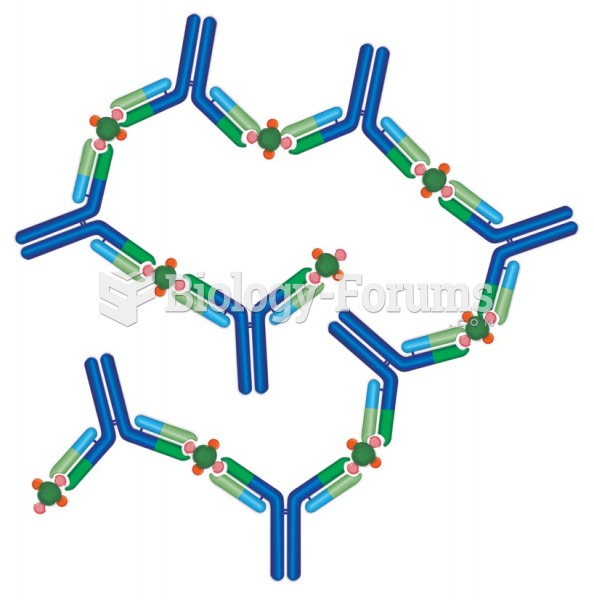This topic contains a solution. Click here to go to the answer
|
|
|
Did you know?
Approximately 500,000 babies are born each year in the United States to teenage mothers.
Did you know?
Common abbreviations that cause medication errors include U (unit), mg (milligram), QD (every day), SC (subcutaneous), TIW (three times per week), D/C (discharge or discontinue), HS (at bedtime or "hours of sleep"), cc (cubic centimeters), and AU (each ear).
Did you know?
Most childhood vaccines are 90–99% effective in preventing disease. Side effects are rarely serious.
Did you know?
In 2010, opiate painkllers, such as morphine, OxyContin®, and Vicodin®, were tied to almost 60% of drug overdose deaths.
Did you know?
Eat fiber! A diet high in fiber can help lower cholesterol levels by as much as 10%.






